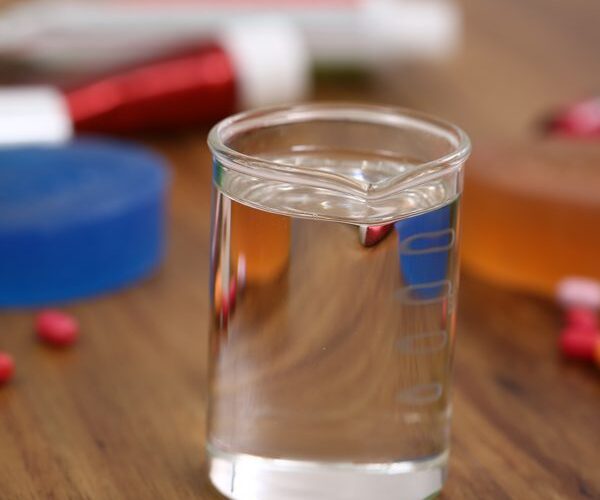In the realm of sweeteners, Sorbitol 70% shines as a popular and versatile option. With its sweet taste, excellent stability, and various applications, Sorbitol 70% has become a key ingredient in the food, pharmaceutical, and personal care industries. In this blog, we will dive into the fascinating world of Sorbitol 70% and explore its uses, benefits, and potential considerations.
What is Sorbitol 70%?
Sorbitol is a naturally occurring sugar alcohol found in fruits and plants. It is commonly derived from corn syrup through a process called hydrogenation. Sorbitol 70% is a concentrated solution that contains 70% Sorbitol and 30% water. The resulting solution is a clear, viscous liquid with a sweet taste but a lower caloric content compared to traditional sugars.
Applications in the Food Industry:
Sorbitol 70% is widely utilized in the food industry as a sugar substitute. Its sweetness profile is similar to that of sucrose (table sugar), making it an excellent alternative for calorie-conscious consumers. It is often used in sugar-free or reduced-sugar products such as confectioneries, chewing gums, baked goods, and beverages. Sorbitol 70% enhances the taste, texture, and mouthfeel of these products while providing a lower glycemic index and reduced calorie content.
Pharmaceutical and Personal Care Uses:
Beyond the food industry, Sorbitol 70% finds extensive application in the pharmaceutical and personal care sectors. Its properties make it an ideal ingredient for various formulations. In pharmaceuticals, Sorbitol 70% acts as a non-irritating excipient and a stabilizer for oral suspensions and syrups. It is also used as a humectant in cough syrups, lozenges, and liquid medications to prevent drying and maintain the desired consistency.
In personal care products, Sorbitol 70% is valued for its moisturizing properties. It can be found in skincare products, toothpaste, mouthwashes, and hair care formulations. Its humectant capabilities help retain moisture, preventing dryness and providing a pleasant sensory experience for consumers.
Benefits and Considerations:
Sorbitol 70% offers several advantages, which contribute to its popularity in various industries. Here are some key benefits:
- Caloric content: Sorbitol 70% provides approximately 2.6 calories per gram, compared to 4 calories per gram in regular sugar. This makes it a suitable option for those seeking to reduce caloric intake while still enjoying sweetness.
- Non-cariogenic: Unlike sucrose, Sorbitol 70% is non-cariogenic, meaning it does not promote tooth decay. This property makes it a desirable ingredient for oral care products and sugar-free candies.
- Stability: Sorbitol 70% exhibits excellent stability in high temperatures and acidic conditions, making it suitable for a wide range of applications. It remains unaffected by heat, ensuring its functionality in baking and food processing.
While Sorbitol 70% offers numerous benefits, it’s important to note some considerations:
- Laxative effect: Excessive consumption of Sorbitol 70% may have a laxative effect, causing gastrointestinal discomfort or diarrhea in some individuals. It is advisable to consume it in moderation and be mindful of personal tolerance levels.
- Diabetes and sensitivities: Although Sorbitol 70% has a lower glycemic index than sucrose, individuals with diabetes should still monitor their intake as it can affect blood sugar levels. Additionally, individuals with sensitivities to sugar alcohols should exercise caution.
Conclusion:
Sorbitol 70% is a versatile and widely used sugar substitute that has revolutionized the food, pharmaceutical, and personal care industries. Its sweet taste, stability, and unique properties make it an excellent alternative to traditional sugars. As with any food ingredient, it is important to use Sorbitol 70% in moderation and consider personal tolerances and sensitivities. So, whether you’re seeking reduced-calorie sweets, soothing skincare products, or stable pharmaceutical formulations, Sorbitol 70% is sure to play a sweet role in your everyday life.

